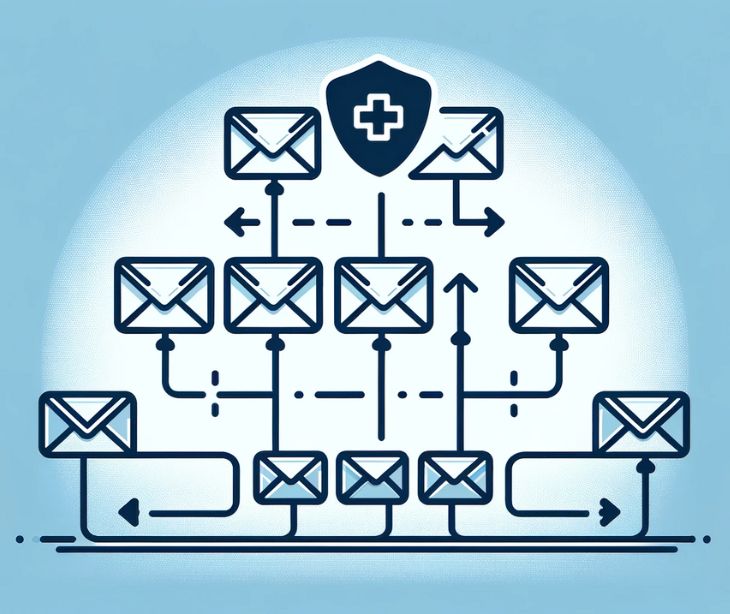
In healthcare email marketing, HIPAA rules govern the inclusion of protected health information (PHI). These rules include securing patient consent, using only necessary data, avoiding personal identifiers, skipping external links, and providing easy unsubscribe options for patient privacy and data security.
Understanding PHI in healthcare email marketing
PHI includes a wide range of patient data, from medical records and treatment history to insurance details and demographic information. This data can be invaluable for personalizing healthcare communications and tailoring messages to individual patient needs.
However, the handling of PHI in email marketing campaigns should be approached with care. HIPAA defines PHI as individually identifiable health information, meaning any data linking an email recipient to specific health-related details falls under this category. As such, healthcare organizations must be cautious about what information is included in their marketing emails and how it is used.
Related: 7 easy steps to include PHI in marketing emails
What is HIPAA's role in email marketing?
HIPAA regulations are the cornerstone of data protection in the healthcare industry. They extend to email marketing to ensure patients' PHI is handled with the utmost privacy and security.
Obtaining patient consent
Obtaining patient consent for using their PHI in marketing emails is a HIPAA requirement. Written authorization is a step that ensures patients are fully aware of and have explicitly consented to the use of their PHI for marketing purposes. This written consent should specify the nature of the marketing communications and the scope of data use, leaving no room for ambiguity.
This consent process goes beyond a simple "opt-in" checkbox. It should be transparent, with patients clearly understanding what they are agreeing to. It also means that patients have the right to opt out at any time, and their wishes must be respected promptly.
Related: Understanding opt-in and HIPAA compliant email marketing
Minimum necessary standard
The minimum necessary standard dictates that healthcare organizations must use and disclose only the minimum amount of PHI necessary for the intended purpose. In email marketing, only relevant PHI should be included in the message.
Avoiding personal identifiers vs. HIPAA compliant personalization
Personal identifiers, such as patient names, addresses, and phone numbers, can make it easier for unauthorized individuals to identify and target patients. While it might be tempting to personalize emails with such information, you must balance personalization and patient privacy.
One way to achieve this balance is by using anonymized or pseudonymized patient data when crafting marketing emails.
However, personalized healthcare email marketing significantly outperforms non-personalized emails. This is possible when using a HIPAA compliant email marketing provider like Paubox. The subject line and contents of the email are encrypted, making it compliant with HIPAA requirements for secure transmission of PHI.
Related: How to balance personalization and privacy for HIPAA compliance
Clear unsubscribe instructions
Patients should have the option to opt out of receiving future marketing emails at any time, and this process should be hassle-free.
In addition to compliance, a straightforward unsubscribe process helps maintain a positive relationship with patients. It shows that the healthcare organization respects their preferences and values their privacy. Ensuring that opt-out requests are promptly honored maintains trust.
Ensuring ongoing compliance with rules in email marketing
- Regular audits and assessments: Conduct periodic audits and risk assessments of email marketing practices to identify and address potential vulnerabilities or noncompliance issues.
- Staff training and policies: Invest in staff training to ensure everyone involved in email marketing understands HIPAA regulations and the organization's policies. Having clear policies and procedures in place can help enforce compliance.
- Technology and security: Invest in HIPAA compliant email communication tools and technologies that can help encrypt emails containing PHI and protect patient data.
Subscribe to Paubox Weekly
Every Friday we bring you the most important news from Paubox. Our aim is to make you smarter, faster.




